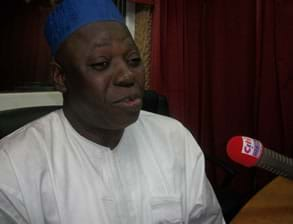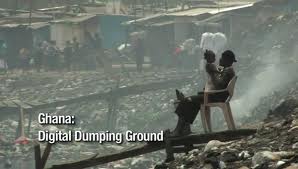Foreign Minister Alhaji Muhammad Mumuni has urged industrialised countries to deliver their funding pledges, saying the numerous pledges must be honoured to assist developing countries.
These should include $30 billion in fast-track financing for developing countries' adaptation and mitigation efforts through 2012, as well as the pledge to raise $100 billion a year by 2020.
Speaking during the General Assembly debate of the 65th Session of the United Nations General Assembly in New York, he said for developing countries, the early delivery and transparent allocation of this money would boost their confidence in the dialogue and also show that industrialized countries were truly committed to progress in the broader negotiations.
"Just as there was an 'Aid Fatigue', developing countries may soon be experiencing a 'Promise Fatigue'. We must get the numerous pledges off from the fine prints and make them work for humanity," he said in his speech made available to the GNA in Accra on Wednesday.
"We have made progress in the implementation of the Millennium Development Goals (MDG) agenda. However, keeping the solemn promise we made in 2000 and achieving the goals by 2015, will require intensified efforts, much more resources and effective cooperation."
Alhaji Mumuni said no one should be oblivious to the enormous challenges African and other developing countries faced in their efforts to achieve the MDGs.
The Minister said while the reduction of extreme poverty and hunger was a major development challenge facing Africa, most countries in the region were also grappling with the problems of climate change, high disease burden, poor infrastructure, brain drain and the lack of development of productive capacity.
He noted that in the last few years, African countries had had to deal with the effects of rising food and energy prices and the complications emanating from the global financial and economic crisis.
"These multiple crises have not only reversed recent impressive progress made in economic performance, but are also jeopardizing efforts by African countries to achieve the Millennium Development Goals (MDGs)."
Alhaji Mumuni said it was gratifying that the interests of the international community in climate change had increased markedly in recent times, especially after the adoption of the Bali Action Plan in 2007.
"We need to sustain that interest and to build on the common ground that began in Rio de Janeiro in 1992, with the establishment of the United Nations Framework Convention on Climate Change (UNFCCC) and subsequently, in Berlin, Kyoto, Marrakesh, Bali, Copenhagen and soon, Cancun."
Alhaji Mumuni called for political will to address issues for progress in Cancun and beyond.
"Industrialized countries have made pledges to cut emissions by 2020. However commendable these commitments may be, they fall short of the 25 to 40 per cent cut which the Intergovernmental Panel on Climate Change (IPCC) says gives a chance of staying below the recommended two degree average global temperature rise."
The Minister said Ghana subscribed to the declaration by the African Union Assembly of Heads of State of 2010 as a year of Peace and Security adding that Ghana would, therefore, continue to engage other member states in the search for peace and security in places which have known no peace on the continent.
Ghana would also contribute to renewed global efforts to prevent conflicts through preventive diplomacy, peacekeeping and peace-building.
Alhaji Mumuni said as we witness a decline in the number of violent conflicts which afflicted many countries over the past decade or more, it was time to renew commitment to the work of the Peace Building Commission (PBC) in ensuring that countries emerging from conflicts did not relapse into violence.
The Minister said Ghana strongly supported the principle of the Responsibility to Protect as the normative framework to prevent and deter the occurrence of genocide, war crimes, crimes against humanity and ethnic cleansing which occurred in many countries that were emerging from conflicts.
"While the fear of its abuse does not take away the intrinsic value of the principle of the responsibility to protect, caution must be exercised in order to avoid the abuse of the responsibility to protect."
The Minister pointed out that this principle was intended not to undermine the sovereignty of States.
On the contrary, he said, it was to ensure that sovereign responsibility was exercised in a manner that would prevent a repetition of the mass atrocities that were experienced in places like Rwanda, Srebrenica, Cambodia and Sierra Leone with devastating impact in neighbouring countries.
Alhaji Mumuni pledged that Ghana would not compromise, under any guise, in its pursuit of good governance and the promotion of the rule of law as these were important prerequisites for achieving sustainable social and economic development.
He noted that African countries themselves had come to acknowledge that part of the reasons for their impoverishment could be attributed to poor post-independence governance practices.
He said that was why most African countries had taken steps to consolidate their governance institutions, including strengthening the electoral system.
Turning to food security, Alhaji Mumuni said this was a national priority for Ghana, as for most citizens, getting enough good quality food at affordable price was a major concern.
He said the Government was therefore implementing a progressive agricultural policy that would ensure increased production, especially in staples and other food crops that our climate and land can efficiently support.
Alhaji Mumuni said Ghana would soon become an important producer of oil and gas adding that the focus of the Government was to ensure that Ghanaians derived the maximum benefit from the oil production.
He said although oil revenues would start coming in around the fourth quarter of the year, the Government was taking measures to ensure accountability and transparency in the management of revenue from the oil production.
Alhaji Mumuni said an Oil and Gas Revenue Management Bill had been submitted to Parliament for approval adding that the Government was holding a series of consultations with several countries and private operators with the expertise and experience in the field to tap their knowledge and adopt best practices.
The Minister said Africa was tired of the misery and poverty arising out of resource-induced violent conflicts.
"Africa wants to use its oil and natural resources to create wealth for its citizens."
He called on the United Nations and well-meaning development partners, including the international business community, to support efforts to nip the so-called resource curse in the bud, and exploit the God-given natural endowments for development.
Source: Ghana News Agency








